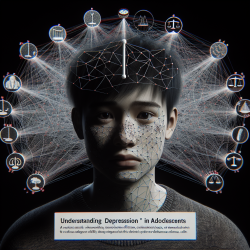Introduction to Utah's School Behavioral Health Toolkit
Utah's School Behavioral Health Toolkit is a comprehensive guide designed to enhance the mental and emotional wellness of school-aged children. Developed by the Utah State Board of Education, this toolkit aims to provide school districts and community partners with the resources needed to address behavioral health needs effectively.
Why Behavioral Health is Crucial for Student Success
Behavioral health encompasses mental health and wellness, as well as support for substance abuse and addiction. It is essential for students to have access to behavioral health services in school settings, where early intervention can significantly impact their academic and social development. The toolkit emphasizes the importance of collaboration between schools and community partners to create a responsive support system for students and families.
The Framework: A Systematic Approach
The toolkit is structured around a systematic approach derived from the Strategic Prevention Framework by the Substance Abuse and Mental Health Services Administration (SAMHSA). It includes five stages: Assessment of Needs, Building Capacity, Planning, Implementation, and Evaluation. Each stage is designed to guide schools in creating and sustaining effective behavioral health services.
- Assessment of Needs: Identify local behavioral health needs using data and community input.
- Building Capacity: Develop resources and readiness to address these needs.
- Planning: Strategize effective interventions and how to implement them.
- Implementation: Deliver programs and practices as intended.
- Evaluation: Assess the success of the interventions and refine strategies.
Guiding Principles for Success
The toolkit is built on four guiding principles: Culture, Data, Collaboration, and Sustainability. These principles ensure that behavioral health services are culturally responsive, data-driven, collaborative, and sustainable over time. By integrating these principles, schools can create a supportive environment that fosters student success.
Real-World Application and Success Stories
Utah's Behavioral Health Toolkit includes real-world examples and tools that have been successfully implemented across the state. For instance, Alpine School District's Suicide Prevention Coalition has effectively used the toolkit to address behavioral health concerns, demonstrating the power of collaboration and strategic planning.
Conclusion: A Call to Action
The Utah State Board of Education invites all school and community leaders to utilize this toolkit to enhance behavioral health services. By working together, schools and communities can create a supportive environment that promotes mental wellness and academic success for all students.
For more information, please follow this link.










